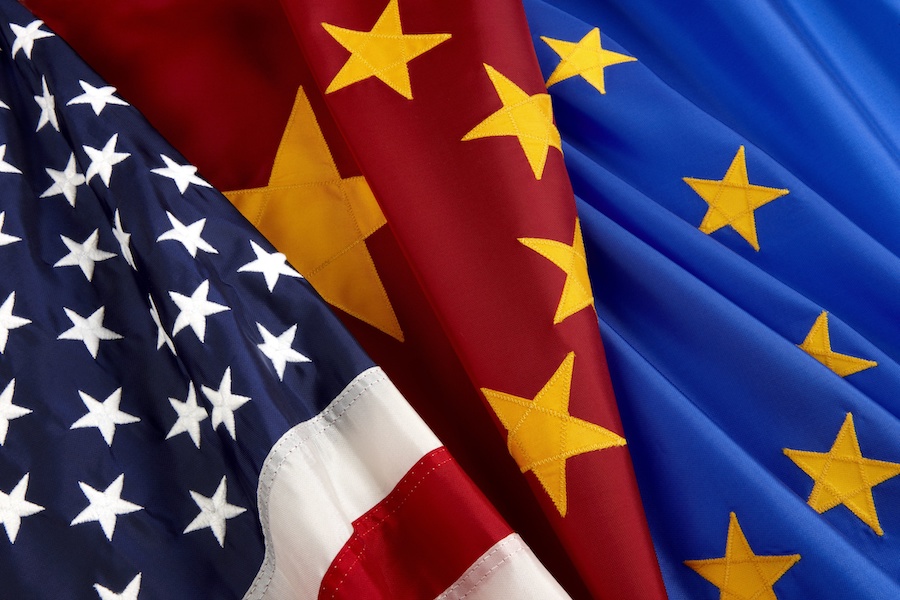Brave New Second World

In his latest book, The Second World: How Emerging Powers Are Redefining Global Competition in the Twenty-first Century, political scientist Parag Khanna dismantles traditional notions of first and third world power, arguing that the traditional leaders will yield to the global influence of smaller countries.
Interview with Sam Martin
Your book refers to three superpowers — the US, China, and the European Union — as well as to countries that belong in the “second world.” What are second world countries?
Some people say that the Pacific is replacing the Atlantic, the East is replacing the West, China is replacing America, and so on. But I think that’s all nonsense.
I think we live in a multi-polar world in which China, America, Europe, Russia, Brazil, and India are all powers. Historically, we think that one power defeats and replaces another, but the 21st century is very different because it’s everyone at the same time. Yes, there are some states that are more powerful than others, and each has its own gravity. China has a very strong gravity. It borders a lot of different countries, and it pulls them into its economic orbit. You also hear about [nations in] Africa and Latin America being in trade with China. It’s an example of multiple gravities being exerted in regions where the US thought it was dominant.
You’ve used the term “post-colonial entropy.” Can you explain the concept?
Post-colonial entropy refers to the slow, gradual unraveling of many post-colonial societies of the past half-century. Many of the countries I refer to are in Africa. But Pakistan falls into this category. So does Indonesia. We think of these states as stable, but I believe that to be stable, infrastructure has to be maintained, national ethos has to be renewed, and the institutions of the state have to be perpetually invested in. Pakistan, Indonesia, and most countries in Africa are really splintering and coming apart.
Russia seems to be gaining more power these days. It appears to have more economic standing, but that’s not your take.
Russia could hardly have fallen any lower than it did in the 1990s. Its economy after the collapse of the Soviet Union fell to the size of The Netherlands. It hit rock bottom. So, compared with that, everything looks good. Also, Russia only looks powerful when oil prices are high. But that’s not a measure of power. If you have to depend on an external crush, as you do when oil prices are high, it means you don’t have intrinsic power. Your power is dependent on everyone else paying the prices for your oil. The second oil prices go down, you’re not so powerful anymore.
In your book, you talk about three factors that are repositioning countries in the world: money, culture, and energy. Does Europe contain all these things?
The power of the European Union is mostly internal, in the sense that it is an open trade block in the largest economy in the entire world. It’s also a zone of peace and stability and growing prosperity. In terms of foreign influence, it’s taking advantage of its periphery as best as it can. It imports oil and gas from Russia, Turkey, and North Africa — so it has diversified energy supplies. People often say Europe is a geopolitical midget because it’s not really there in the great game of global energy, but it doesn’t need to be. It’s smarter and richer and has had a faster transition to alternative energy and conservation. Everything the US wants to do today in terms of mass transit and fixing the highways and solar power — this stuff has been around in Europe for a decade. America is catching up to the rest of the industrial world. It is at least a decade behind. Who is going to benefit the most from Obama’s green stimulus? European companies are, because they know how to do it better than anyone. There are German companies licking their lips right now.
Give us your grand worldview. What will the world look like in the next 20 years?
It’s the new Middle Ages. It’s a world in which you not only have countries and empires and states, but you have city-states, which were really the main political entity of the Middle Ages. Back then, you also had multinational corporations and powerful families, such as the Medicis, and the chartered companies. You had the terrorists, the mercenaries, and the plagues. There are a lot of parallels in today’s world. It’s messy, but I think there are more positives [than in the Middle Ages]. There are so many actors involved now. You can solve problems better because you have more NGOs, universities, and philanthropists all helping governments. That’s the positive side of medievalism.